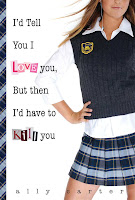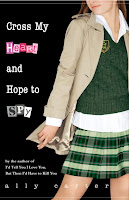STATUS: I can’t believe it’s 6 pm and I’m now starting what was on my actual TO DO list for the day. It’s just been one of those.
What’s playing on the iPod right now? GRAPE FRUIT- JUICY FRUIT by Jimmy Buffett
If you are a debut author, agents sell your first novel based on a complete manuscript. There are certainly some rare exceptions where a novel might sell on a partial but usually because the author has some kind of strong background in the arena (say as an established screenwriter or prestigious short story credits) that gives the publisher assurance that the writer can pull it off.
Once published and established, lots of authors simply submit a synopsis and the first three chapters to sell the next project.
But for debut authors, why do agents need fulls?
For one very basic reason, I’ve read several requested full manuscripts that were excellent for about 150 pages and then went totally south. And in such a way that I believed the revision to be so large, I wasn’t willing to commit to it with the author.
This happens. Often.
I have to know that a brand new author can carry the novel to a satisfying conclusion. That all the elements will fall into place in a masterful way. Usually a novel’s climax happens two-thirds of the way in the work (not in the first 150 pages), so a full becomes crucial so as to evaluate it.
Just lately, I’ve read two full manuscripts all the way till their conclusions—only to ultimately pass on offering representation. This is rather rare. I can usually tell 100 to 150 pages in whether something is going to work for me or not.
So what was up with these two? I loved certain aspects of the novels. For one, I loved the writing but the story just wasn’t being compelling for me. I read all the way to the end in the hopes that I could finally put my finger on what was bothering me so I could have something useful to say to the writer. I actually never was able to articulate it. Despite really strong writing, I just didn’t feel passionately about it.
For the other, I read to the end because I wanted to see how the work ended and whether the conclusion would give me insight into whether this author could revise enough to make it worth offering an editorial letter with an eye to revising.
As you can imagine, fully editing a manuscript and writing up an editorial letter is really time consuming so I have to be convinced that it might be worth my time. If the ending really wows me, that can be the clincher. Unfortunately for this title, the ending didn’t sway me and I passed altogether. I did write up some of my concerns in my one-page response but it certainly wasn’t a whole editorial letter. (Just FYI—a good editorial letter on my part can easily take 2 hours to write.) If I’m not won over, I won’t commit to the time needed to create it.
Had I not had the full for either, I would have definitely passed. Now I passed anyway with these two fulls but I was looking for a reason to be swayed the other direction. That wouldn’t have happened without the complete work. And I can name two current clients who I asked to revise a full novel significantly before I offered representation. Similar circumstance to the above but in these two instances, I swayed to the side of accepting rather than rejecting.






